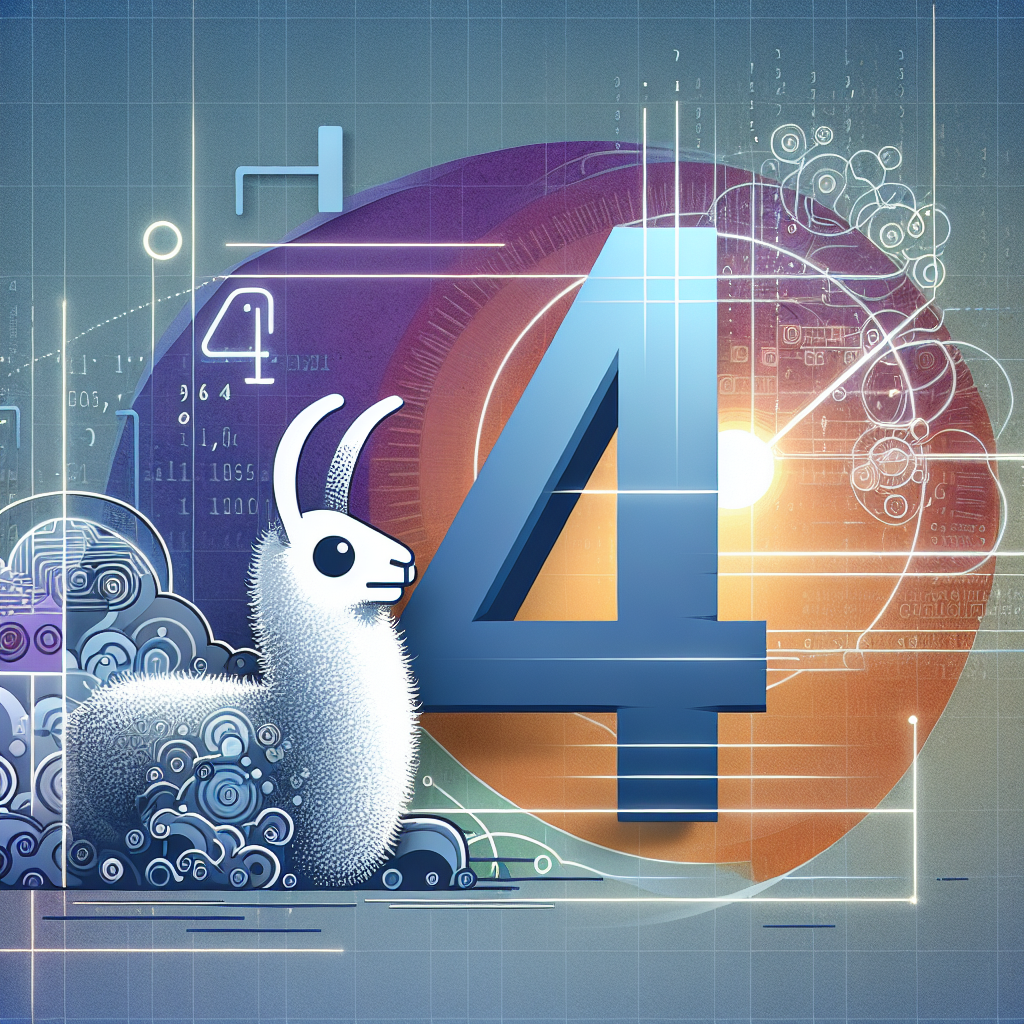Meta Gears Up for Llama 4 Launch Targeting April Release
Meta is making significant strides in the artificial intelligence space, signaling the upcoming launch of its next-generation large language model, Llama 4, with an anticipated release date slated for next month. This move reflects the tech giant’s commitment to remaining at the forefront of AI innovation while also expanding its toolkit for developers and businesses through improved APIs and a dedicated developer conference.
What is Llama 4?
Llama, which stands for “Large Language Model Meta AI,” represents Meta’s initiative to develop highly capable, open-source AI models that rival offerings from other tech giants like OpenAI, Google DeepMind, and Anthropic. Llama 4 will be the fourth installment in this growing family of models, said to bring major performance enhancements, increased training data, and improved accuracy over its predecessor, Llama 2.
While full details on Llama 4’s architecture are yet to be made public, early testing reportedly shows that it will be significantly more powerful in terms of both reasoning and coding abilities, making it highly appealing for developers, researchers, and enterprises looking to integrate AI into their workflows.
Meta’s AI Strategy: Focus on Openness and Accessibility
Unlike some competitors that release closed foundational models, Meta has made a strategic commitment to open-sourcing its AI models to encourage widespread adoption, customization, and community-based improvements. With the release of Llama 4, the company is expected to continue this philosophy, giving developers worldwide easier access to advanced AI capabilities.
This open model approach not only creates a broader user base but also acts as a strategic lever against competitors offering proprietary tools and models in more restricted environments.
Expansion of Business-Centric AI Tools
In addition to the release of Llama 4, Meta plans to expand the capabilities of its Llama-powered business API. This expansion is designed to offer enhanced integration tools for companies wishing to deploy Llama models in various operational applications—from customer support chatbots to intelligent document analysis and beyond.
The improved API will likely support more domains and languages, provide improved latency, and offer developers access to better customization options. This could present a major boon for businesses seeking scalable, cost-effective AI without vendor lock-in.
Features Expected in the New Business API:
- Customization: Tailor Llama models to fit domain-specific language and workflows.
- Scalability: Support for enterprise-grade workloads with minimal configuration.
- Security and Compliance: AI features designed with data privacy and regional compliance regulations in mind.
LlamaCon: A Developer-First Conference for AI Innovation
Targeting the developer community, Meta is also planning the inaugural LlamaCon, a new AI-focused conference that will showcase tools, best practices, and case studies dedicated to building, training, and deploying generative AI models using the Llama framework.
At LlamaCon, attendees can expect:
- In-depth technical workshops by engineers and AI researchers.
- Real-world implementation showcases from partner companies.
- Live demos and access to new tools, including Llama 4-powered solutions.
- Opportunities for networking and community collaboration.
This developer-centric approach highlights how Meta is positioning itself not just as a provider of powerful AI tools but as a facilitator of innovation, enabling a global community of engineers to build the next generation of intelligent applications.
Llama vs. the Competition
The upcoming Llama 4 model will enter an increasingly crowded LLM landscape but is expected to stand out in a few key areas:
- Open-source foundation: Ideal for academic and commercial research.
- Developer flexibility: More customizable and lightweight compared to some closed platforms.
- Cost-effectiveness: Reduced costs due to open licensing and API improvements.
Conversely, proprietary models such as OpenAI’s GPT-4 or Anthropic’s Claude offer turnkey solutions but often face criticism for their black-box nature and high operational costs.
Meta’s Broader Vision for AI and Future Applications
The development of Llama models goes hand in hand with Meta’s broader aim of integrating AI deeply within its ecosystem—spanning Facebook, Instagram, WhatsApp, and future plans in the metaverse. The enterprise and developer markets represent just a fraction of the potential applications Meta is exploring.
From personalized content recommendations to next-generation AI chat experiences inside Meta apps, Llama-based technology is poised to play a pivotal role in reshaping how users and businesses engage with digital tools.
Conclusion: Meta’s Llama 4 Signals Major Leap Forward
Meta’s upcoming launch of Llama 4, bolstered by an expanded business API and the developer-focused LlamaCon event, positions the company at the heart of the AI conversation. With a unique commitment to openness, scalability, and practical integration, Meta is Poised to solidify its standing not only as a social media giant but also as a serious AI powerhouse.
As April approaches, eyes across the tech and developer communities will be watching to see just how transformative Llama 4 can be—and what it means for the future of open-source artificial intelligence.



Leave a Reply